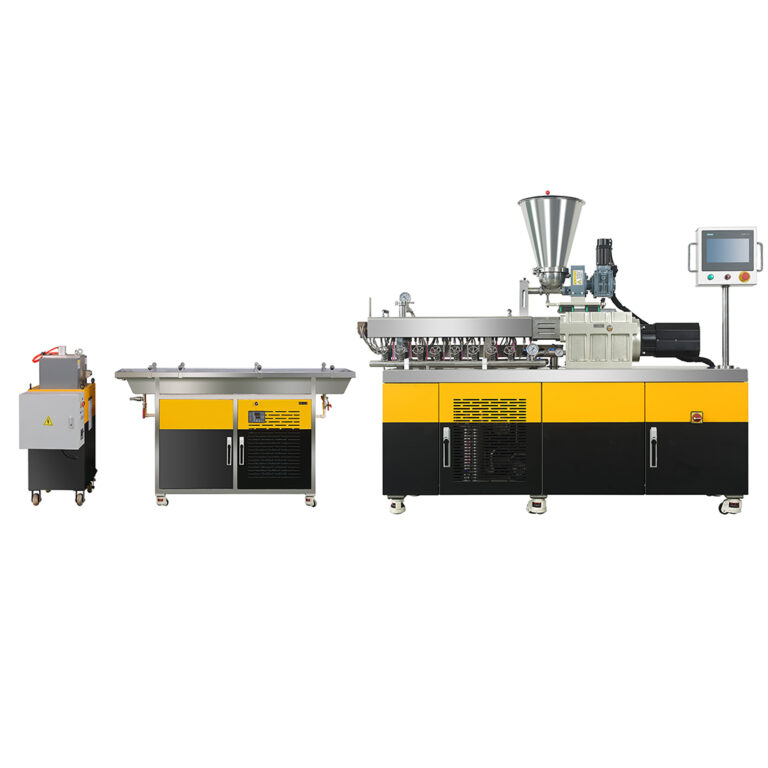Product Introduction:
Three-screw internal circulation low-temperature granulation technology is an advanced plastic processing technology that combines the unique advantages of the three-screw granulator and achieves the same or even better mixing and dispersing effect as the twin-screw granulator by adopting a smaller aspect ratio. This technology not only improves material quality, simplifies production processes, and reduces costs, but is also an ideal choice for masterbatch manufacturers to manufacture high-performance, high-quality products.
Product performance:
1. Efficient mixing and dispersing effect: The three-screw granulator achieves drastic shearing, squeezing, kneading and grinding effects on raw materials through its special design, such as the arrangement of three screws with equal holes in the same direction, so as to better homogenize and disperse the materials, and improve production efficiency and product quality.
2. Low energy consumption: Compared with the traditional twin-screw granulator, the three-screw granulator has lower energy consumption. Its output increases more with the increase of screw speed than the twin-screw, and its positive displacement conveying capacity is strong. The screw length is only half of that of the conventional twin-screw, which is conducive to reducing the screw torque, thereby significantly reducing energy consumption.
3. Compact design: The three-screw granulator has a short aspect ratio, a small model, and a small footprint. The loss of water, electricity and other energy sources is much smaller than that of the general twin-screw machine, which makes it more economical and efficient in industrial production.
4. Wide range of applications: The three-screw granulator is suitable for various occasions that require high mixing and dispersing effects, such as the preparation of polyolefin modified materials, engineering plastic modified materials, and the preparation of high-concentration masterbatches and other effect masterbatches.

